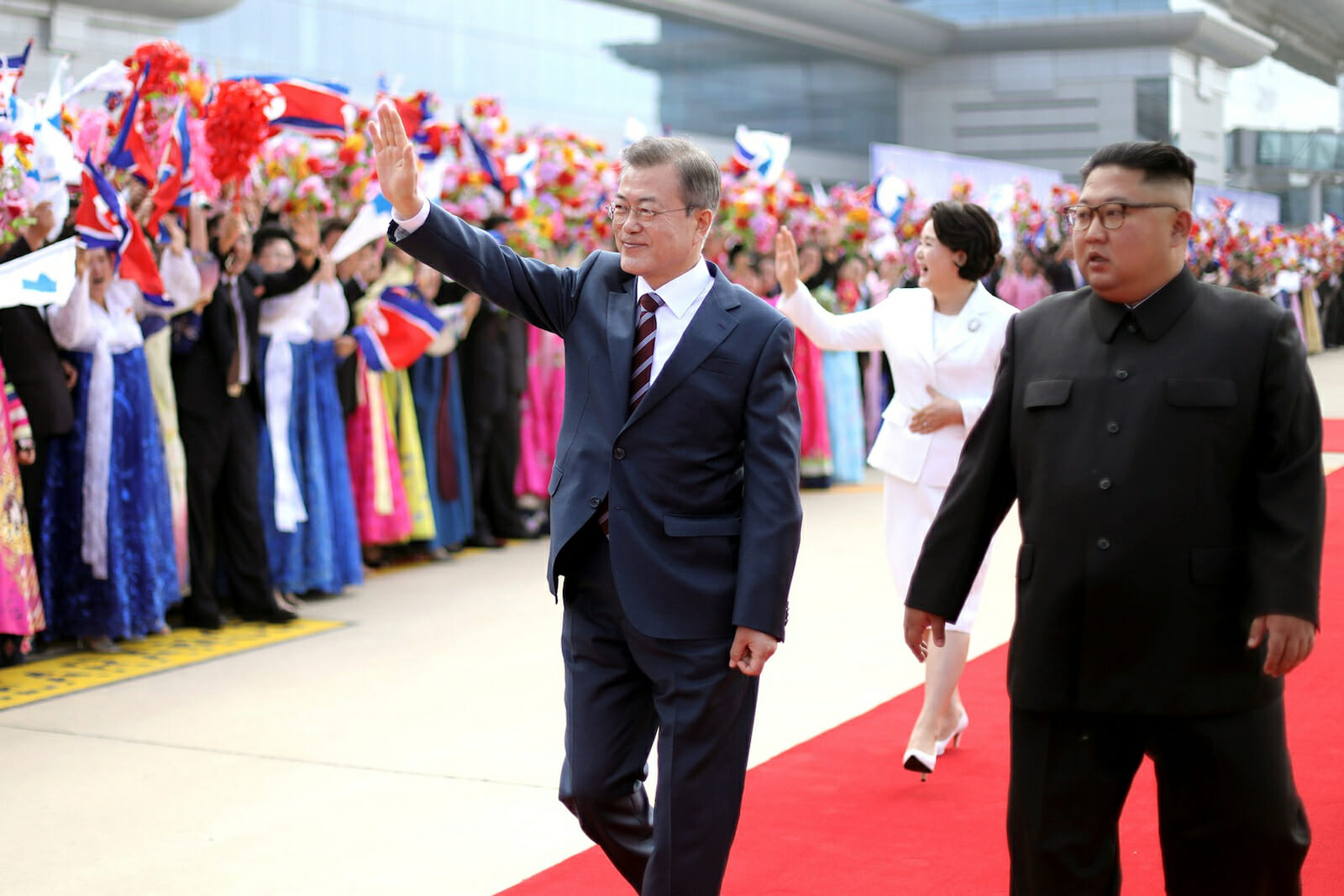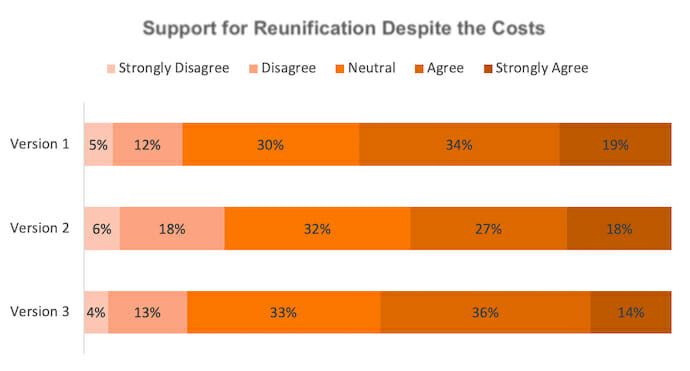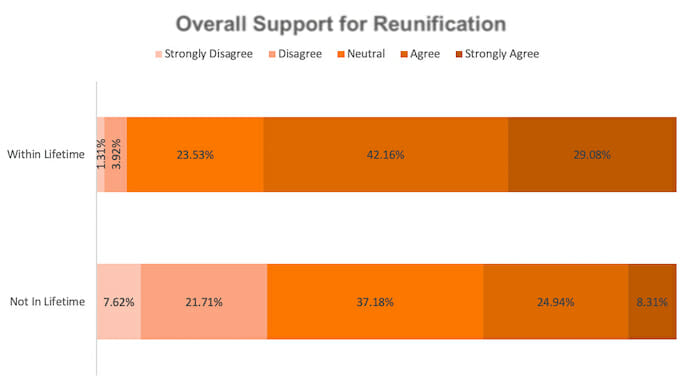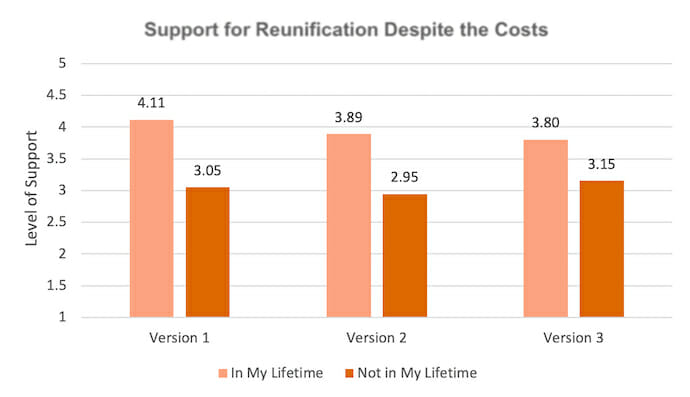
South Korean Perceptions of Reunification
While a majority of South Koreans support reunification, what influences this support is less clear. Historically, support for reunification has been sustained due to a sense of ethnic nationalism. However, some studies show that younger generations are moving away from this sentiment. Studies have found that those in their 20s are both more likely to view North Koreans as a “stranger/enemy” and prefer peaceful coexistence over reunification. Additionally, previous research suggests that age, gender, and education levels all influence support for reunification.
This support for reunification does not seem to hold up when potential economic or social costs are mentioned. For example, past studies have found that a mention of the economic burden of reunification can lessen the support of the general South Korean public and another survey found a majority would choose the health of the economy over reunification. Additionally, views of North Koreans can influence support, with previous survey work finding that a majority of South Koreans believe the greatest challenge after reunification will be the assimilation of North Koreans. There is also research describing that political factors, both short-term and long-term, can influence support.
Despite this, little research has focused on whether the public is expecting reunification in their lifetime and how this can influence support. In order to answer these questions, we surveyed 748 South Koreans in March 2019 via a web survey, conducted by Macromill Embrain, using quota sampling by age, gender, and region based on census data. Data on demographics such as age, gender, education, income, religiosity, and ideology were also collected.
Respondents were randomly assigned one of three versions of a statement to measure their support for reunification, then asked to rate the statement on a five-point Likert scale (1 strongly disagree, 5 strongly agree):
Version 1: I support reunification.
Version 2: I support reunification despite the economic costs to South Korea.
Version 3: I support reunification despite the likelihood of many North Koreans’ moving to South Korea.

However, I then wanted to test whether a respondent’s perceived timeline of when reunification will occur influences support for reunification, assuming expecting reunification might make a respondent more supportive of actions that encourage it and less influenced by costs. To address timing, I asked the following yes/no question: “Do you believe reunification will occur in your lifetime?”
A majority of 58.6% of respondents did not believe that reunification would occur in their lifetime. However, when split up by age, I found that 65% of respondents over age fifty did not believe reunification would occur in their lifetime while those 18 to 25 were almost evenly split.

I then wanted to test the effect that believing reunification will occur in the near future will have on a respondents’ support for reunification, which was measured on a five-point Likert scale (1 strongly disagree, 5 strongly agree), despite the potential costs. The graph below breaks down this effect:

Additional survey data by Macromill Embrain this March similarly demonstrates that even with an entirely new sample one year later, believing reunification will occur in their lifetime, increases support for reunification. My findings show that those who believe that reunification will occur in the near future are more likely to have a greater level of support for reunification but are more worried about the potential costs. This implies that South Korean perceptions of reunification are highly influenced by the public’s perceived timeline and these expectations should not be overlooked.
The result, therefore, implies that those who are primed to think about reunification in their lifetime realize the burdens of reunification and need to be more convinced that the negative effects of costs and migration can be handled appropriately. More importantly, this research finds that those who do not expect reunification in their lifetime are less likely to be sensitive to these costs, and this could be an issue for future government policy as well. The biggest challenge for the South Korean government will be in getting these people to accept the costs now in order to ease the burden later on and promoting policies that consider expectations about the timing of reunification.
Based on the results of this research, the South Korean government should invest in ways to improve perceptions of existing North Korean immigrants so that migration does not seem as daunting to the public, especially considering the lack of connection felt by the younger generation. The promotion of economic and security benefits should also be emphasized concurrently with migration to reduce the possibility of losing public support for reunification. More broadly, learning why voters support reunification and under what circumstances they are less likely to support it will help to better frame and plan for the possibility in the future.

